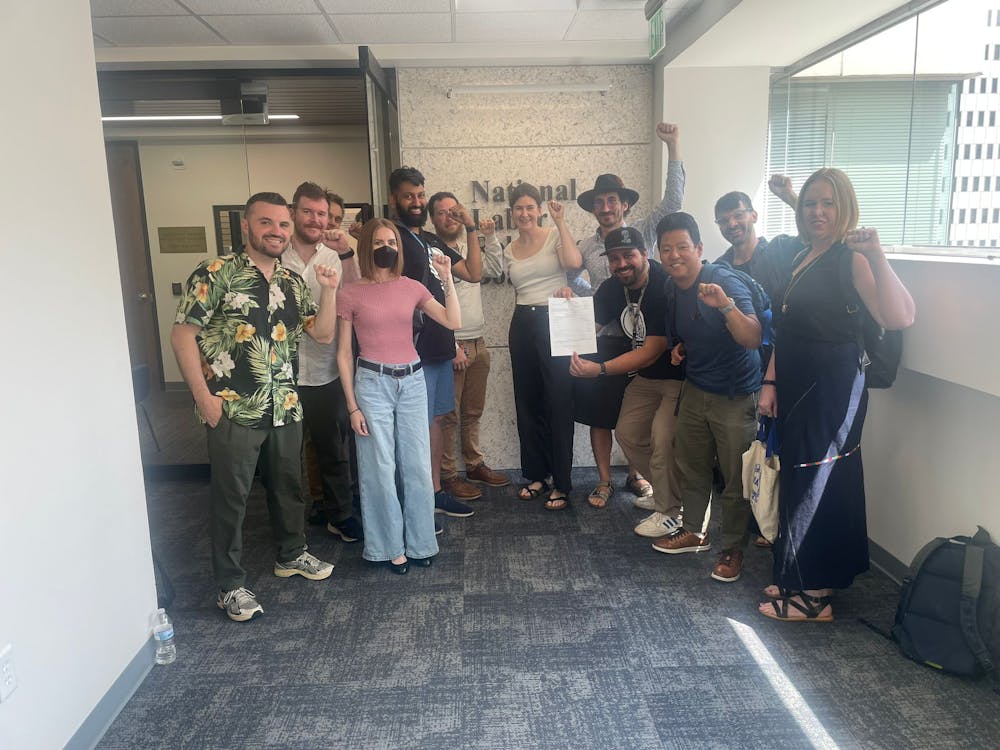Hopkins graduates Mario Jovan Shaw and Jason Terrell were roommates at Teach for America and then entered the master’s program the Johns Hopkins School of Education when they realized a fundamental problem: How could they encourage young black boys to continue their education or go into education, as they did? Shaw and Terrell discovered that young black boys needed to see role models like themselves in the classroom.
They founded their organization, Profound Gentlemen, which helps connect black male educators with the underserved boys of African-American communities in cities like Atlanta, Charlotte, Chicago, Cleveland, Washington D.C. and Memphis. Forbes’ 30 Under 30 list, which recognizes America’s leading young innovators and entrepreneurs, recently featured Profound Gentlemen as a promising new organization.
Terrell described how both his and Shaw’s personal experiences with educators within Hopkins classrooms sparked their idea to connect black and Latino teachers and students with one another. They noted that while they attended Hopkins, they saw a need for more non-white educators.
“A lot of Profound Gentlemen births from the idea that Mario met a lot of students in [Hopkins] that were really influential, doing some great programs, and a lot of his students had told him that he was their first black male teacher that they ever had,” Terell said. “This was a similar experience for myself as well. Now we try to talk to these educators and talk to them about how we can diversify and help a lot of the isolation that boys of color feel in the classroom.”
Shaw explained the concept the of the cradle-to-prison pipeline, in which black and Latino boys living in low-income communities are much more likely to end up imprisoned than their white peers. Profound Gentlemen strives to transform this reality.
“What we try to do with Profound Gentlemen is to show that this is what the cradle-to-prison pipeline looks like, and education is the opposite,” Shaw said. “When you see that the majority of the prison population is made of black boys, that’s a problem.”
He then explained how he thought this problem should be tackled.
“So how do we reverse that?” Shaw said. “Part of that is we get male educators to lead mentoring groups of no more than 10 boys to help then in social and emotional learning as well as help them to identify several career options that they’re interested in before they go to college.”
Terrell explained that when he was growing up, having black role models who emphasized the importance of education was critical to shaping his identity.
“I was always into liberal arts and reading. I knew for me, that was really important,” Terrell said. “I definitely attribute my time in the classroom and my experience with education in general as helping me and influencing me.”
Shaw believes that having representation in the classroom is important for black and Latino boys, because it allows students of color to forge close relationships with their teachers and envision their own possible careers.
“Representation is so important. In public schooling, [boys of color] often see a majority of white female teachers. When you do see a black male teacher, you start to think, ‘I can actually become that,’” Shaw said. “There’s data that shows that when you do create strong relationships with students, they achieve a lot better and it really does increase the opportunities that they have.”
Shaw then went on to explain that black boys face many obstacles that keep them from getting an education.
“The sad fact is that only 50 percent of black males graduate from college. The first [problem] is running out of financial aid. And then you see how often they change their major,” Shaw said. “You want the young boys to go to college and have a bank of ideas about what they want to do. We want to track those boys of color from kindergarten to 12th grade and see if they were able to be supported.”
Shaw outlined their plans for the future. While Profound Gentlemen currently serves six regions, demand for their program is growing. Currently, they face a problem where they do not have enough staff to meet this growing demand.
“Right now, our goal is to really deepen our impact. We get a call every single day saying, ‘Hey, come to Miami, come to San Francisco.’ We know that there is such a need, but because there’s only two of us and nine part-time staff members, it can be overwhelming for us to take on more cities,” Shaw said.
When asked what he would say to a young boy of color in the American education system, Terrell stressed that it’s important to believe in the power of education.
“I believe education is a civil rights issue. I think that especially in order to change communities that are distressed, education is the ultimate equalizer,” Terrell said. “I would tell a student that their role is more important than the president — you can change minds, you can change perspectives. We really value that education is the ultimate equalizer, and we need more people to advocate for it and educate kids.”




